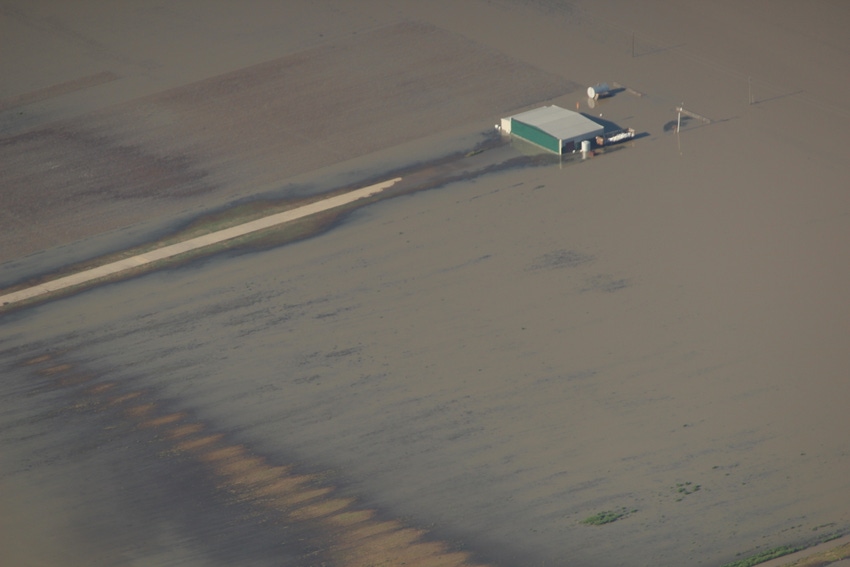
The 2019 backwater flood marks a year of historic rainfall in the Mississippi River Valley.
The Delta Council's 2019 mid-year board of directors meeting on Nov. 22 took a deeper look at the flooding that started in 2018 and continued into 2019.
"April 2018 to March 2019 was the wettest 12-month period in the whole Mississippi River Valley since they started keeping records in 1895," said Peter Nimrod, chief engineer of the Mississippi Levee Board. "We all know it took forever for the rain to go away and the land to dry up. It flooded 548,000 acres, 231,000 acres of which were cropland. That was 231,000 acres of cropland that did not get planted at all this year, nothing."
He said that there were 686 documented homes flooded. Three highways were flooded, and two people died in the 2019 backwater flood.
"I don't have to tell you that it was an economic disaster," Nimrod said. "We have seen 231,000 acres of farmland flooded, 686 homes flooded, people losing their jobs, and people being laid off for the entire year. It has been a terrible event economically.
"Also, look at the environmental devastation. We have lost a whole generation of wildlife. Thousands of deer died, and we don't know the percentage of the deer left in the area. Also, other animals like turtles, raccoons, alligators, etc., were affected because of lack of food."
The animals will repopulate and come back to the land, but it will take time.
"Some hunting clubs are not even going to hunt deer this year because they want to see if they can get their herd back because it's tough," Nimrod said.
Yazoo backwater pumping plant
The solution, he said, is to finish the pumps.
"You've seen it everywhere, 'Finish the pumps.' We have everything in place. We have the levees. We have the drainage structures, but if we don't have the pump, we don't have anything," he said.
The Corps of Engineers came up with a plan not only to build the pumps, but also includes large-scale reforestation.
"When you combine the idea of the pumps and reforestation," Nimrod said, "you get a double-digit percentage increase in every environmental resource category, so this project is not only good for us but the environment too.
"We've had a big change in the Environmental Protection Agency leadership in the last two years, and they are now on board with this project. On March 18, the Region 4 EPA administrator came to the Delta. We flew her on a helicopter, and she was shaking her head like, 'I cannot believe this is going on. I cannot believe the EPA stopped these pumps from being built.'"
Nimrod said the Corps and the EPA have been working together all summer going over new data the Corps has been working on.
"The EPA administrator went to the Vicksburg District, the Mississippi River Commission, and those guys are working together to see if they can modify the project to make it more environmentally friendly than it already is. Then they can issue a new permit based on the modified project," he said.
The hope is that by next spring the EPA can issue a new permit for the pump project, which will launch the four-year project into action.
"Things are moving forward. We're going to get the pumps; it's just a matter of when," Nimrod said. "We think the time is great right now with the leadership that we have in place. This is our best shot by far that we've had in a long time to get them. It's just a matter of time."
See https://bit.ly/33oPuHo for more information on the Yazoo Backwater Project.
About the Author(s)
You May Also Like




